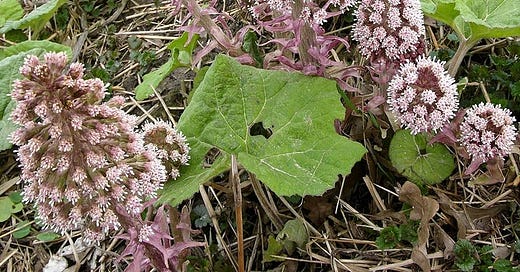Butterbur, scientifically known as Petasites hybridus, belongs to the daisy family (Asteraceae) and has a rich history of use in herbal medicine. Its name, "butterbur," is believed to originate from the traditional practice of wrapping butter in its large leaves to keep it cool.
Throughout history, butterbur has been utilized for a range of health concerns, including headaches, respiratory ailments, and digestive issues. The plant's rhizomes and leaves are the primary parts used for their medicinal properties.
The Potential Health Benefits of Butterbur:
Migraine Relief: One of the most prominent uses of butterbur is its ability to help prevent and alleviate migraines. Studies have shown that regular use of butterbur extract can reduce the frequency and intensity of migraine attacks, making it a valuable option for migraine sufferers.
Allergy Management: Butterbur has also been found effective in managing allergic rhinitis, commonly known as hay fever. Its anti-inflammatory properties can help reduce allergy symptoms like sneezing, runny nose, and itchy eyes.
Respiratory Support: Butterbur's traditional use in respiratory ailments extends to modern times, where it may help ease conditions such as asthma and bronchitis due to its bronchodilatory and anti-inflammatory effects.
Antispasmodic Properties: Butterbur has been used to alleviate cramps, spasms, and digestive discomfort, making it useful for individuals with irritable bowel syndrome (IBS) and other gastrointestinal issues.
Anti-Inflammatory and Antioxidant Effects: Some studies suggest that butterbur possesses anti-inflammatory and antioxidant properties, which can be beneficial for overall health and well-being.
*Consult a Healthcare Professional: Before using butterbur or any other herbal supplement, consult with a healthcare professional. They can provide guidance based on your specific health needs and potential interactions with medications you may be taking.



